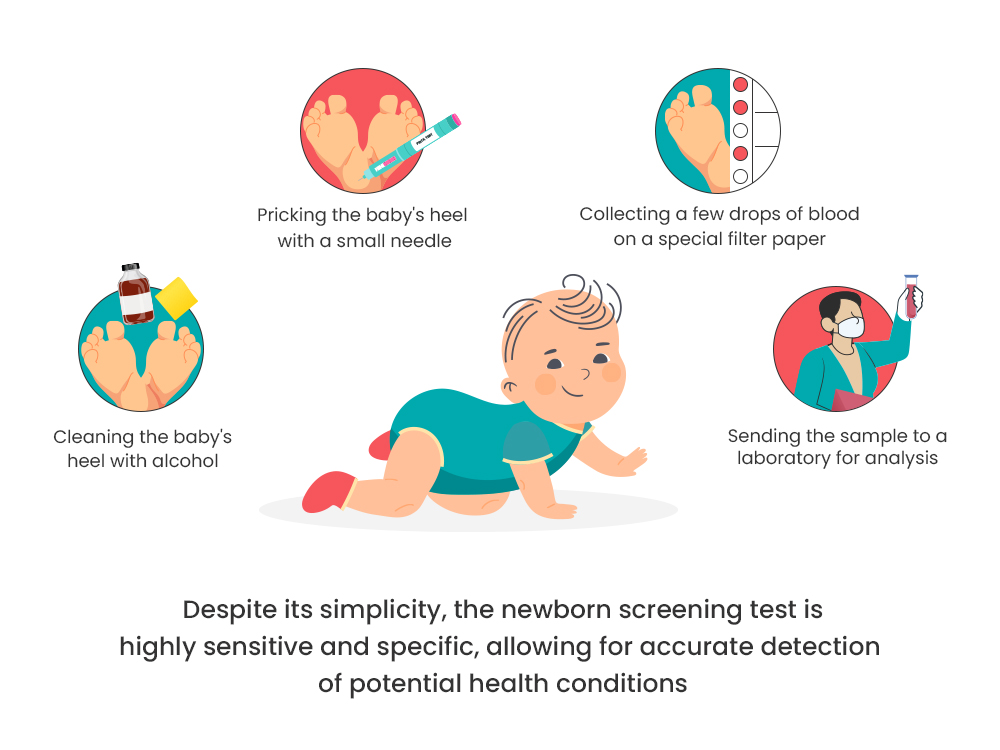Newborn Screening Test, is a crucial procedure conducted shortly after the birth of a baby. This preventative health measure aims to identify presymptomatic infants who could develop significant metabolic or endocrine disorders if left undiagnosed and untreated.
What is Newborn Screening and Why is it Important?
Newborn screening plays a role, in practice, by aiming to diagnose potential health conditions at an early stage. The main objective is to minimise or prevent lasting consequences through sensitivity of the tests.
The purpose of screening is to act as a safety measure identifying health concerns as early as possible which enables timely intervention and proper management.
The significance of screening lies in its ability to identify conditions that may not be apparent at birth but could lead to health problems later in life.
Common Conditions Detected by Newborn Screening
Newborn screening can detect a variety of conditions. These are primarily metabolic disorders in newborns, endocrine disorders, and other common newborn diseases like:
- Hypothyroidism
- Cystic fibrosis
- Sickle cell disease
- Medium-chain acyl-CoA dehydrogenase deficiency (MCAD)
- Biotinidase deficiency
The Newborn Screening Test Procedure
Newborn screening is typically performed within the first 24 to 48 hours after birth. The newborn screening test procedure involves a simple heel prick to collect a small blood sample.
What if Your Baby Tests Positive?
In case of a positive result from the newborn screening test, it is important not to panic. A positive result doesn’t always imply that the baby has the condition. Instead, it indicates the need for further testing.
“A positive result in a newborn screening test is not a diagnosis. It’s a signal for further tests.”
The neonatal genetic testing or newborn thyroid screening test, for example, will involve specific biochemical and molecular tests for confirmation
Supporting Your Baby’s Health Post-Newborn Screening
Supporting Your Baby’s Health Post-Newborn Screening
Post-screening, the health and development of your baby can be supported in numerous ways. Regardless of the outcome of the newborn screening, regular check-ups, a balanced diet, and timely vaccinations are critical for your baby’s health.
In cases where a metabolic disorder in newborns is detected, specific therapies or treatments may be recommended by the pediatrician.
In conclusion, newborn blood tests or newborn screenings are vital for early detection and intervention of potential health issues. While the screening can bring potential health problems to light, it is the timely and accurate follow-up that facilitates the best health outcomes for your baby.
“The goal of newborn screening is not just early detection, but early action.”


